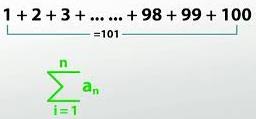Exams test your ability to identify arithmetic sequences by looking for a constant common difference between terms, then use formulas to find any nth term (an) or the sum (Sn) of a series. You will be expected to apply formulas like
an=a1+(n−1)d and
Sn=n/2(a1+an) where 𝑎1 is the first term,.
d is the common difference, while n is the number of terms.

here are the questions involving sequence and series
Question 1
(a) The first term of an arithmetic progression is 3 and the sum of its first 8 terms is 164.
(i) Find the common difference of the arithmetic progression. (2 marks)
(ii) Given that the sum of the first 𝑛 terms of this arithmetic progression is 570, find 𝑛. (3 marks)
(b) The first, fifth and seventh terms of another arithmetic sequence forms a decreasing geometric progression. If the
first term of the geometric progression is 64, find
(i) The values of the common difference of the arithmetic sequence (3 marks)
(ii) The sum of the first 12 terms of the geometric progression. (2 marks)
Question 2
2. An arithmetic progression of 41 terms is such that the sum of the first five terms is 560
and the sum of the last five terms is -250. Find:
(a) The first term and the common difference (5mks)
(b) The last term (2mks)
(c) The sum of the progression (3mks)
Question 3
The first term of arithmetic progression (A.P) is a and the common difference d. the 7th term of the A.P is 11. The sum of the first 12 consecutive terms of the A.P is 123.
(a) (i) Form two simplified equations involving a and d to represent the information (2mks)
(ii) Find the values of a and d. (3mks)
(a) The 1st, 3rd and 8th terms of the A.P from the first 3 consecutive terms of a geometric progression (G.P). Calculate;
(i) The 6th term of the G.P. (3mks)
(ii) The sum of the first 6 terms of the G.P. (2mks)

